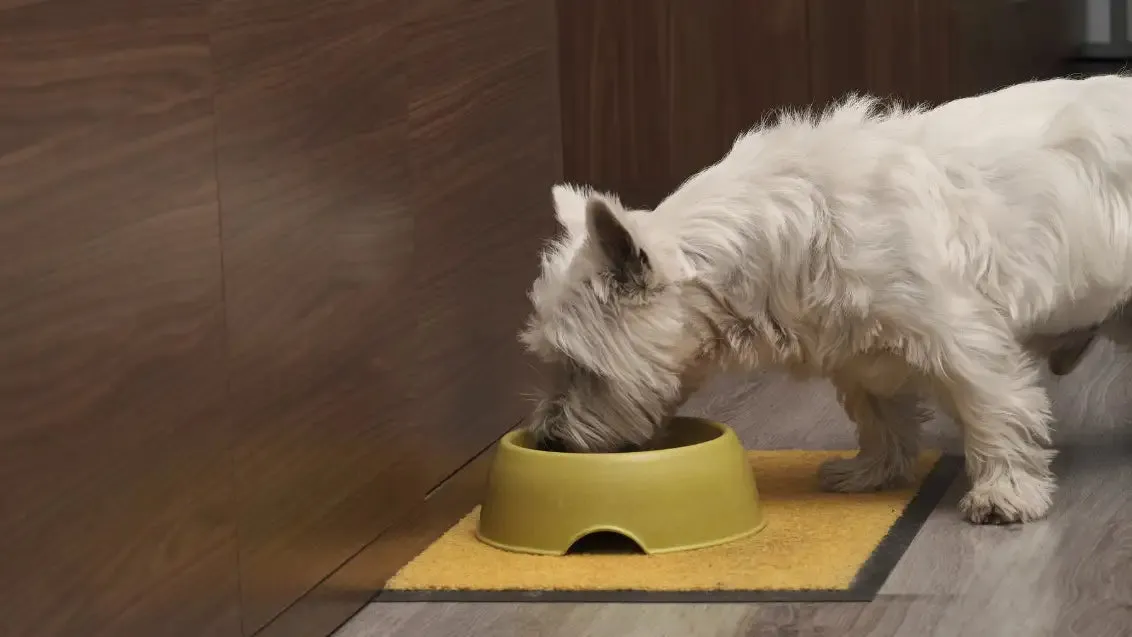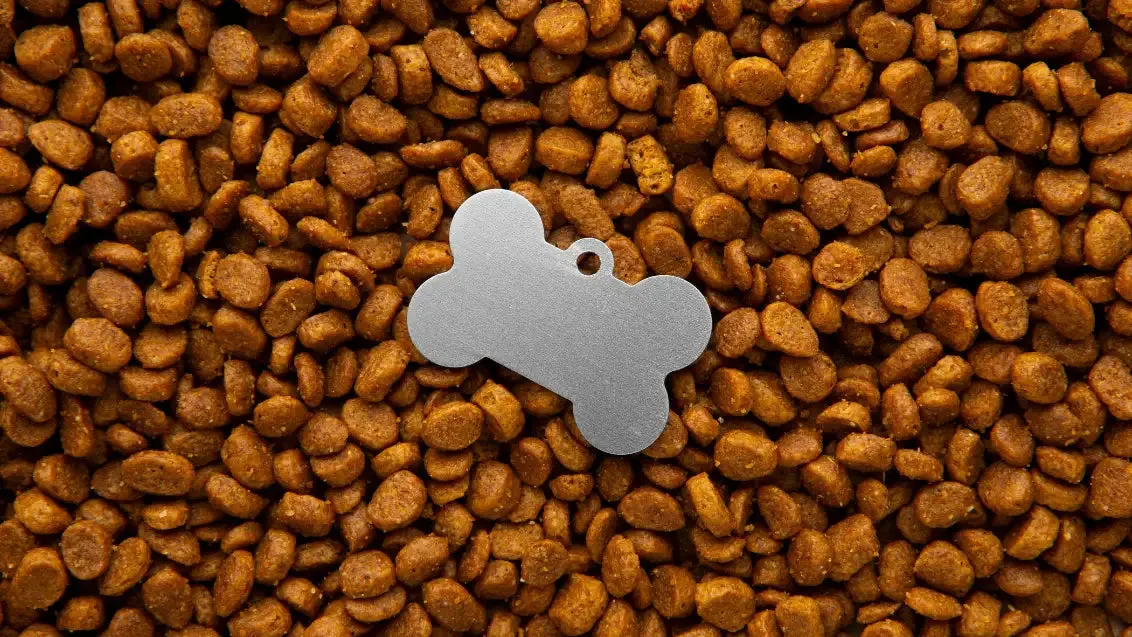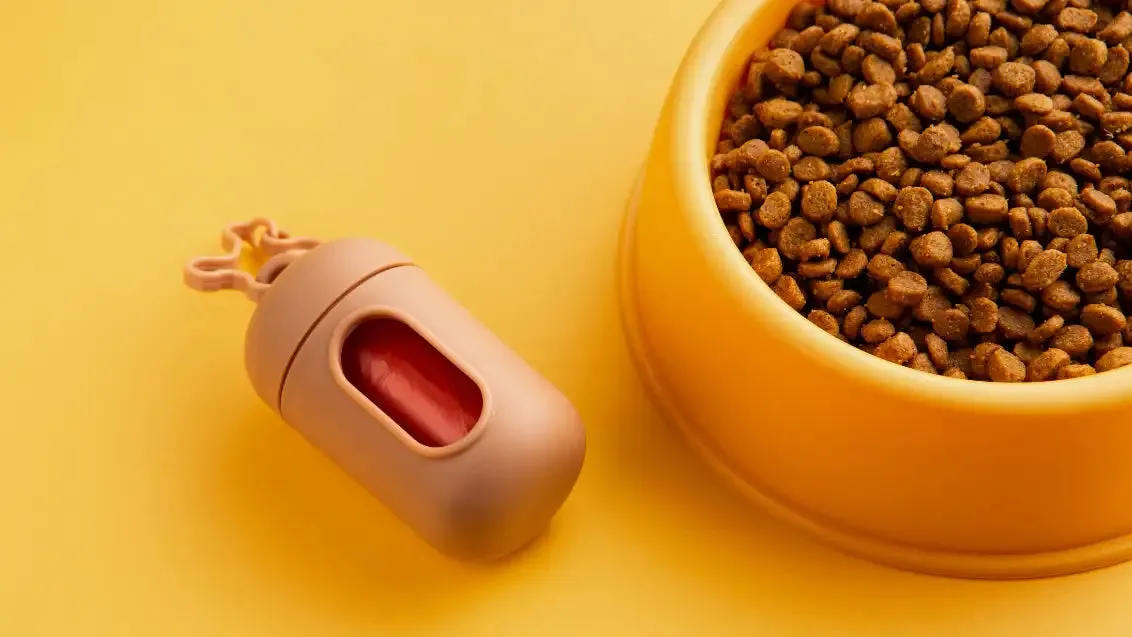As your beloved dog enters their golden years, their needs evolve, just like ours. They may sleep more, play less, and even eat slower. This transition means their diet often needs an upgrade to keep them healthy and comfortable. Finding the best Healthy Wet Dog Food For Senior Dogs isn’t just a recommendation; it’s a commitment to their well-being. This specialized nutrition focuses on supporting their changing bodies, from weaker teeth and slower digestion to diminished senses and the need for enhanced hydration.
Why Wet Food is Superior for Your Senior Dog
Wet dog food offers distinct advantages for aging canines, making it an ideal choice as they mature. Its softer texture is a significant benefit for senior dogs who often experience dental issues, gum disease, or tooth loss, making chewing dry kibble painful or difficult. Furthermore, wet food naturally boasts a higher moisture content, contributing significantly to your dog’s daily hydration, which is crucial for kidney function and overall health in older pets. The strong aroma and palatable taste of wet food can also stimulate the appetite of senior dogs whose sense of smell and taste might have declined, ensuring they consume adequate nutrients. Finally, the ingredients in quality wet food are typically easier to digest, reducing strain on their aging digestive systems and preventing issues like constipation or discomfort.
Recognizing the Signs: When Your Senior Dog Needs a Food Upgrade
Paying close attention to your senior dog’s behavior and physical condition can reveal when it’s time to re-evaluate their diet. Key indicators include a noticeable loss of appetite, where they might sniff their food and walk away, or unusual pickiness. Digestive upset, such as frequent diarrhea or constipation, suggests their current food might be difficult to process. A dull, dry, or thinning coat, bad breath, or unexplained weight loss or gain are also red flags. Persistent issues like these, or sudden changes in your dog’s health, warrant a visit to the vet. For immediate concerns, knowing where to find emergency veterinary clinics near me can provide peace of mind.
 A senior dog enjoying a bowl of wet food, illustrating improved palatability and digestion for older canines
A senior dog enjoying a bowl of wet food, illustrating improved palatability and digestion for older canines
Essential Ingredients in Healthy Wet Dog Food for Seniors
Selecting the right wet food means looking for specific ingredients that support senior dog health. High-quality protein sources like chicken, turkey, or beef are crucial for maintaining muscle mass, which naturally declines with age. Omega-3 fatty acids, often derived from fish oil, play a vital role in supporting brain function, reducing inflammation for joint health, and promoting a healthy skin and coat. Fiber-rich vegetables such as pumpkin and sweet potatoes aid digestion and provide sustained energy without causing sugar spikes. Antioxidant-rich ingredients like blueberries and carrots help bolster the immune system, protecting against cellular damage. Some formulations also include glucosamine and chondroitin for additional joint support.
Ingredients to Avoid: Red Flags in Senior Dog Food
Just as important as knowing what to include is knowing what to avoid. Be wary of “meat by-products,” which are often ambiguous and can consist of low-quality, less digestible protein sources. Corn syrup and excessive sugars offer empty calories that can lead to weight gain, diabetes, and dental problems. Artificial colors, flavors, and preservatives provide no nutritional value and can be potential allergens or irritants for sensitive senior dogs. High sodium content can strain an older dog’s kidneys, which are already working harder. Additionally, common fillers like corn, wheat, and soy can be difficult for some aging digestive systems to process and may trigger allergies.
Top Recommendations for Healthy Wet Dog Food for Senior Dogs
When choosing the best healthy wet dog food for your senior canine, several brands consistently stand out for their quality and tailored formulations.
- Hill’s Science Diet 7+ Senior Wet Dog Food: This popular choice is formulated with balanced nutrition, high-quality protein, and easily digestible ingredients specifically for dogs aged seven and older. It supports energy levels, healthy organs, and provides essential antioxidants.
- Blue Buffalo Homestyle Recipe Senior Wet Dog Food: Featuring real meat as the first ingredient and free from grains, this option offers excellent taste and natural ingredients. It’s often enriched with essential vitamins and minerals, promoting overall wellness.
- Nutro Ultra Grain-Free Senior Wet Dog Food: Ideal for senior dogs with allergies or sensitivities, Nutro Ultra provides an antioxidant-rich formula. Its smooth texture and natural ingredients support a robust immune system and provide easy digestion.
- Wellness Complete Health Senior Wet Dog Food: Known for its gut-friendly approach, Wellness Complete Health focuses on high-quality proteins and wholesome ingredients. It helps maintain a shiny coat and supports digestive health with prebiotics and probiotics.
- Purina ONE Vibrant Maturity 7+ Wet Dog Food: This more pocket-friendly option is designed to boost alertness and vitality in senior dogs. It combines digestible ingredients with essential nutrients to support cognitive health and a healthy immune system.
 A small dog with a sensitive stomach looking content after eating, emphasizing the importance of specialized diets for sensitive breeds
A small dog with a sensitive stomach looking content after eating, emphasizing the importance of specialized diets for sensitive breeds
Nurturing a Healthy Gut in Senior Dogs
A healthy gut is foundational to overall wellness, especially in senior dogs. Incorporating pure, unspiced pumpkin (not pie filling) can be beneficial due to its high fiber content, aiding both constipation and diarrhea. Probiotics, available in supplements or certain food toppers like goat milk, introduce beneficial bacteria to the digestive tract, improving nutrient absorption and immune function. Always consult your veterinarian before adding new supplements to your dog’s diet. Serving smaller, more frequent meals can also ease the digestive load. Organic bone broth is another excellent addition, offering hydration, amino acids for gut healing, and joint support. If your dog experiences persistent digestive issues, it’s crucial to consult your vet. Don’t hesitate to seek advice from vets for pets emergency if symptoms are severe or concerning.
 A close-up image showing healthy dog food mixed with supplements, representing effective methods to improve a senior dog's gut health
A close-up image showing healthy dog food mixed with supplements, representing effective methods to improve a senior dog's gut health
Addressing Common Senior Dog Issues
Grain-Free Options for Allergies
Senior dogs can develop or exacerbate allergies, often manifesting as dry, itchy skin, frequent ear infections, or post-meal vomiting. For these dogs, a grain-free wet food can be highly beneficial. By eliminating common allergens like corn, wheat, and soy, these diets can reduce inflammation and improve overall comfort. If your dog shows these symptoms, discussing a grain-free trial with your vet is a good step.
Specialized Food for Small Breeds with Sensitive Stomachs
Small senior breeds often have unique dietary needs, particularly if they have sensitive stomachs. Look for wet foods designed with limited, easily digestible ingredients and novel protein sources. These formulations typically exclude common irritants and artificial additives, focusing on gentle nutrition. Smaller portion packs are also advantageous for maintaining freshness and managing caloric intake for smaller dogs. Should stomach issues become acute, contacting a 24hr vet near me is advisable.
 A variety of colorful, healthy dog food and ingredients, suggesting options for grain-free diets suitable for dogs with allergies
A variety of colorful, healthy dog food and ingredients, suggesting options for grain-free diets suitable for dogs with allergies
Wholesome Homemade Treats for Your Senior Pal
Homemade treats offer a wonderful way to give your senior dog nutritious snacks without unwanted additives. They’re also great for dogs with specific sensitivities or those on a limited ingredient diet.
Banana & Oat Power Bites
Ingredients:
- 1 ripe banana
- 1 egg
- 1 cup oat flour
- 1 tbsp coconut oil
Steps:
- Preheat oven to 350°F (175°C).
- Mash the banana, then mix with the egg, oat flour, and coconut oil until a dough forms.
- Roll the mixture into small, bite-sized balls.
- Place on a baking sheet lined with parchment paper.
- Bake for 15–20 minutes, or until golden brown.
- Let them cool completely before serving. Store in an airtight container in the refrigerator for up to a week.
 A batch of freshly baked banana and oat power bites, laid out to cool after preparation, perfect for homemade dog treats
A batch of freshly baked banana and oat power bites, laid out to cool after preparation, perfect for homemade dog treats
Senior Dog Enrichment: Toys for Aggressive Chewers
Even senior dogs need mental and physical stimulation, especially those who were once aggressive chewers. Providing appropriate toys can help keep their minds sharp and jaws strong, while preventing boredom.
- Kong Extreme: Made from ultra-durable rubber, these are ideal for power chewers and can be stuffed with treats to extend engagement.
- Benebone: Infused with real flavors like bacon, chicken, or peanut, Benebones are tough, long-lasting chew toys that satisfy strong chewing instincts.
- Goughnuts Ring: Engineered for extreme chewers, Goughnuts toys are designed with safety in mind, often featuring a visual indicator if the core is exposed, signaling it’s time to replace the toy.
If your senior dog suddenly becomes lethargic or experiences a decline in health that concerns you, do not hesitate to contact an er vet near me.
Conclusion
Aging is a natural part of life, and for our canine companions, it brings unique needs that demand our attention. Providing the best healthy wet dog food for senior dogs is a crucial step in ensuring their comfort, vitality, and overall well-being during their golden years. Prioritize foods with soft textures, high-quality proteins, and beneficial nutrients for gut health, joint support, and cognitive function. Always steer clear of artificial additives, excessive fillers, and ambiguous ingredients. By making informed dietary choices and working closely with your veterinarian—including knowing how to reach an er vet for urgent situations—you empower your senior dog to live their fullest, happiest life. Celebrate every tail wag and cherish the precious time you have together; they deserve nothing less than the best.
